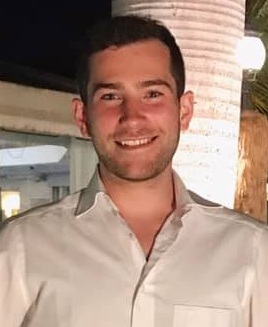Please enjoy a d’var Torah this week from Alex Harris, who was Rosh Shoafim (entering 8th grade) in 2019. Alex spent seven summers at Camp Ramah in Wisconsin as a chanich (camper) and four summers as a madrich (counselor). He will be graduating this December from the University of Michigan specializing in the Middle East and Jewish History.
Meaning and Intentionality: Reflections on Parashat Ki Teitzei
by Alex Harris
As we begin to settle down for the upcoming school year we are often faced with the perennial post-summer question: What did you do this summer? Luckily for me, I’ve had the same answer for 17 years: I went to Ramah. And as my peers increasingly spend their summers doing internships or research, I often ask myself: why am I still working at camp? What brings me back summer after summer?
And we’re not talking about any Jewish summer camp. Ramah is unique in its commitment to deep Jewish learning from the encompassing summer-long theme to the minute details of day to day life. What is so appealing about a camp that not only has Hebrew and text learning for all campers but for the staff as well.
This week’s Torah reading, Parashat Ki Teitzei, has an interesting answer. The parashah contains 74 mitzvot (commandments), the most of any parashah. It covers a wide range of topics from inheritance law to lashon hara (derogatory speech), from building specifications to planting regulations. Some of the mitzvot are self-explanatory, for example: “When you build a new house, you shall make a guard rail for your roof, so that you shall not cause blood [to be spilled] in your house, that the one who falls should fall from it [the roof]” (Deuteronomy 22:8). Others are not so clear-cut such as the prohibition of sha’atnez: the mixing of wool and linen fibers. Others seem egregious and difficult to follow like the case of ben sorrer u’morei, the wayward and rebellious son, who, if found to indeed be a troublemaker is sentenced to death. Yet, all are part of a complete system of mitzvot passed down through generations.
Like the world proscribed by the Torah, life at camp is immersive and all-encompassing. There are things that make sense – throw out the trash, wear sneakers when running – and things that only make sense at camp: dancing and cheering for alufei ha’ashpah (“Aces of Trash”) T-Shirt winners and why the four campers who plan our annual day of competitions (Yom Sport) are called “Ubers.” In addition to the rational and the irrational, there are also discarded relics of a mythic past, things that, like the commandment about the “wayward and rebellious son,” have been deconstructed to the point of irrelevance. (If you’re really interested, check out the Babylonian Talmud on Sanhedrin 68b.)
Traditions at camp, like the mitzvot, stretch deep back into the past to anchor us with those who preceded us. These traditions also offer a vision that flies far into the future. Both systems are designed to infuse meaning and intentionality into every action we do. I love camp because every moment I am there I feel like I am doing something important. I am part of something larger than myself and I am contributing to a rich and vibrant community. I am playing a role in developing the next generation of wise, compassionate, energetic Jews. And it also helps that camp is a really fun place.
Ramah is a unique place that creates a community unlike any other in terms of its commitment to intentionality and meaningful experiences. And that’s why I go back to camp.






